Handling bullying: Every parent wants to think that their child is being bullied. It reduces your having to be interfaced by a 3rd party and helps your child learn bullying, or teasing is not ok (or mean gossip) — with hopefully no long-term impact on the part of these experiences.
So, even if you are a family that does not bully at home, it is wise to have this conversation now so they know what to do.
If your child is being bullied (or, Worst case scenario, bullying others ), you will find this article helpful in learning how to handle such sensitive situations as a parent. It provides advice on how to respond, resources for your child, and tips for home/school safety efforts.
Parenting Tips for Handling Bullying
Top 10 tips for dealing with bullying
1. Understanding Bullying
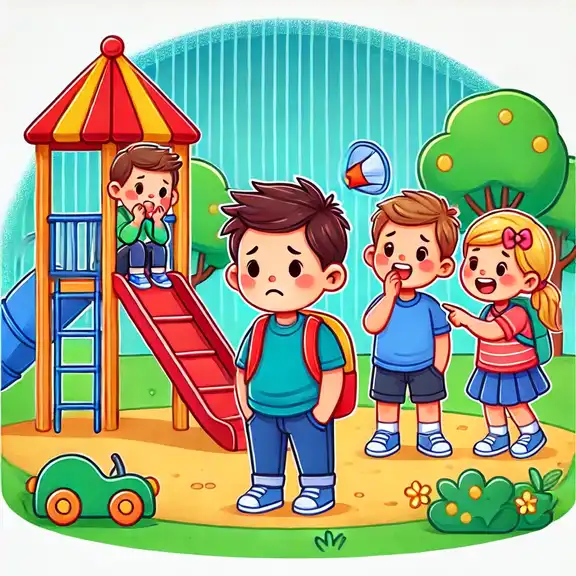
Bullying is unwanted, aggressive behavior that includes a power imbalance. It could be physical (hitting, pushing), verbal (name-calling, threats), or social (spreading rumors, leaving someone out of a group).
But the World Needs to Acknowledge This Behavior If It Is Ever Going To Change, And Knowing The Forms of Bullying is Half The Battle.
2. Understand the Signs of Bullying
Signs Your Child is Being Bullied Several warning signs that your child may be experiencing bullying include:
- Inexplicable injuries: bruises, cuts, or scratches your child cannot explain
- Bad headaches or stomach aches: Especially in this day of cyber bullying, these could be symptoms of stress and anxiety from being bullied.
- Altered eating patterns: Your child may begin overeating and skip meals entirely.
- Academic performance: Because of the lack of love, bullying can significantly affect your kid’s interest in school and thus decrease his grades.
Absenteeism from friends or intimidation-related social situations: Your best friend never seems to spend time with her great group of grade school chums anymore and has given up an interest in sports she used to love.
3. Open-Communication With Your Child
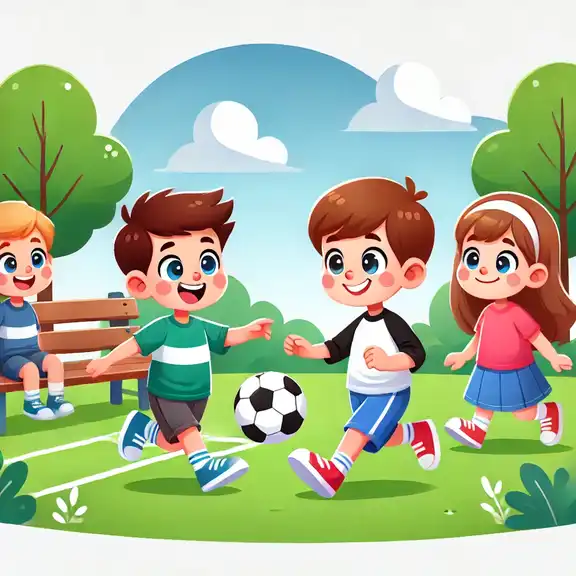
An open line of communication is so important. Ask questions that elicit more than one-word responses, such as “How was school today?” or “Did something take place that pissed you off?” Be nonjudgmental and give solace. [/indeed-social-locker —]
4. Help Your Child Defend
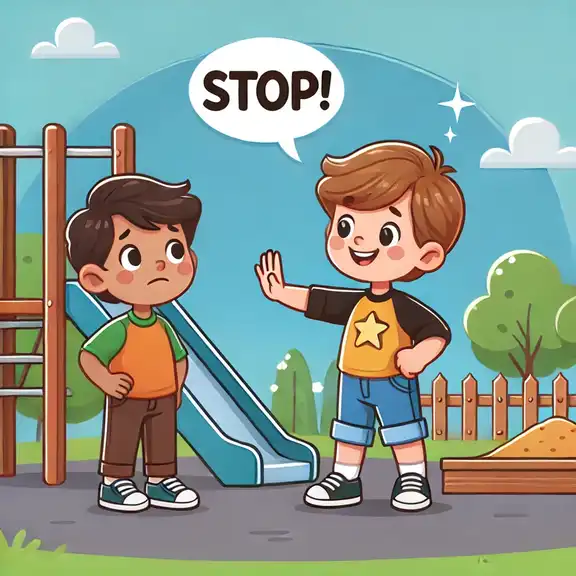
Giving a child the tools to confront bullies assertively can be very powerful. Teach them to stand up straight, make eye contact, and speak with authority. Even simple responses such as “Stop it” and not overdo the same thing that I have done in the past.
5. Promote Healthy Friendships
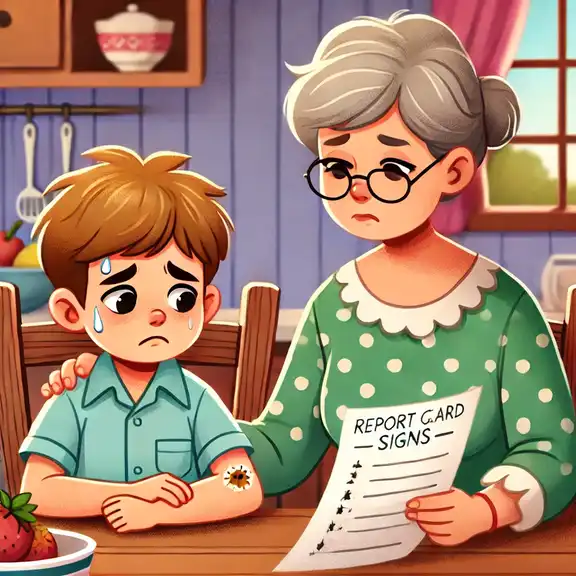
A good group of friends can be instrumental in protecting kids from bullying. Teach your child how to make friend shit and keep it healthy. ones
6. Work with the School
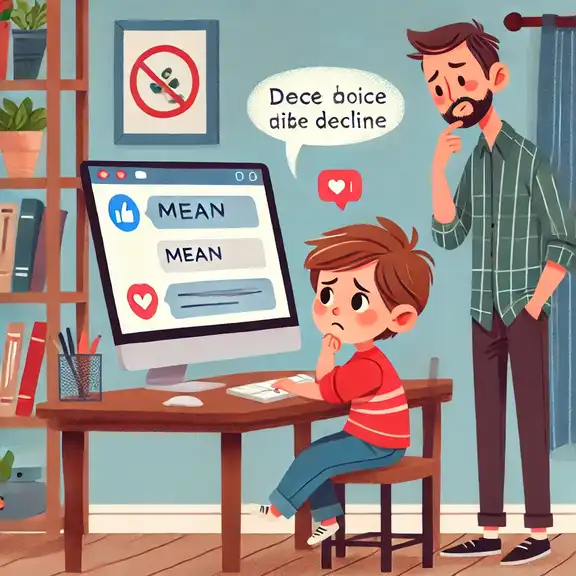
Ask for a meeting with teachers or school counselors to discuss your situation.
Teach Empathy and Kindness
Teach your child to show empathy and kindness. Role-playing different situations can help the child practice how to react when someone is bullying another or they are being bullied.
7. Set a Positive Example
Parents’ actions are generally mimicked by their children. Demonstrate ways to resolve conflicts without drama. Refrain from negativity, gossiping, or poking fun at others.
Unfortunately, we cannot watch children all the time — but one advantage that parents do have over online pedophiles is having access to knowing what their child gets up to on their technological devices.
Cyber bullying is undoubtedly on the rise in this digital age. Check what your child does online and where they are browsing from. Establish clear rules about how to behave online and instruct them on what to do if cyber bullying occurs.
8. Get Help from a Professional If Needed
At times, bullying has been known to have long-term emotional and psychological consequences on a child.
If you see signs of depression, anxiety, or other mental health issues, maybe it’s time to seek some professional help like a counselor or psychologist. They can offer extra support and assistance in developing coping tools.
9. Encourage your child to report bullying.
Tell your child to report any bullying incident and cooperate with safety. If something happens, they will be able to trust an adult, like a teacher or family counselor. Make them understand that reporting is not snitching. Reporting means a courageous act to end malpractices.
10. Be Present In Your Child’s Life
If changes in behavior or mood could indicate bullying and you’re being active with your child’s life, then it helps to identify any signs. Go to school functions, assist in the class, and become acquainted with your kid’s friends and parents.
11. Be Open to the Consequences of Bullying
It can affect a child’s self-image, academic performance, and physical well-being for many years. Knowing this can help you better support your child and advocate for her needs.
Positive reinforcement to Build self-esteem and resilience.
Teach your child to build self-confidence and resilience by exploring new interests or activities. Reinforce their hard work and achievements, and let them shine in other parts of their lives as well.
12. Establish a Hazard-Free Home Environment
Make your home a sanctuary where your child feels secure, loved, and valued. Let him know that he can always come and talk to you about anything.
13. Positive Problem-Solving Encouragement
Help your Child Develop Independent Problem-Solving Techniques. Brainstorm problem-solving techniques for conflicts and how to respond to bullying situations. Strengthening these techniques can help equip kids to combat bullying with more finesse.
14. Deal with Bullying Behavior from a Sibling or Friend
If you see siblings or friends acting like bullies, intervene. Educate them on the results of their actions and prompt healthier interactions. Measures can be taken today to prevent later bullying behavior at home and elsewhere.
15. Encourage Your Child to Do Extra Activities
Try to get your child involved in high school extra-curricular so they can feel good about themselves, learn more outside of the classroom, and make some friends.
Participation in constructive activities can help your child feel better about themselves and is a good defense against bullying.
16. Support Anti-Bullying Legislation
Support anti-bullying policies at schools with other parents and community members. Support legislation that seeks to advance fairness, acceptance, and inclusivity. Together, you can work to create a safer place for all kids.
17. Self-Care as a Parent
It sucks when your child is getting picked on. And when you need to talk, remember to reach out and use your friends, family, or support group!
If your child is being bullied, the only thing you can do is act swiftly in their best interest. You can also support your child through bullying and talk openly about how it may be affecting them.
Even if they are not bullied, arming your child can make a big difference if it does happen in the future. It takes many families and a large support community for children to grow strong.
FAQs
What should be the initial clue that my child is being bullied?
Notice unexplained bruises, wounds, etc, if they seem sad or anxious more often, if their grades drop, such as missing classes during college and withdrawing socially.
How do I talk to my child about bullying?
Develop an environment where your child can honestly talk to you. Ask how the day went in question form. Stay silent and pay attention without interruption. Remind them they can always reach out to you.
What if Someone is Bullying My Child?
First, stay calm. Take some time to speak with your child and learn more about the facts. Jot down the incident and time. After that, contact the school to deal with it.
How do I prepare my child for bullying?
Get them to make good friends and teach them the skills of handling difficult conditions. It will make them feel more confident, and they will gain strength practically.
How can schools help prevent bullying?
Schools must have anti-bullying rules and ensure that everyone feels safe. They must also be swift in addressing incidents of bullying and advocate for all students.
How do I teach my child to protect himself when being bullied?
One good thing you can do is train your kid how to be assertive. When it happens, and the bully wants more chaos, tell them this: ‘Look at them in their eyes, stand firm, say stop or go away.’ With practice, the responses can become more routine, with much less nerves and trepidation while doing them.
How is cyberbullying different from traditional bullying?
They could be nasty text messages or posts. It is fast and can occur at any moment. Parents should educate children on how to block and report online bullies.
When to get professional help for your child
Suppose your child is unfortunate, scared, or angry for a long time, and they talk to you about hurting themselves. In that case, counseling can facilitate and assist in this process of a secure, therapeutic connection to someone who can hold the pain rather than regulate it with alcohol.
How can I motivate my child to report bullying?
Tell your child: It’s brave to say that bullying is happening. Ensure they understand this isn’t their fault, and talking about it can help stop the behavior. If your mentee does speak up, praise them.
How can one spread awareness about anti-bullying in their community?
Get together with other families to help out with anti-bullying school programs. Discuss Kindness and Respect in the Home and Community. Attend bullying information and prevention events.


